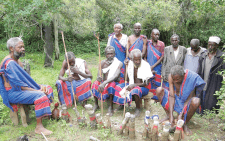The Arboretum, tranquil trove for study and nature sampling

Tucked away just a few minutes from the bustling city centre, the Nairobi Arboretum offers a refreshing escape into nature.
Located just three kilometres from the city’s central business district, the 30.4-hectare forest park is a sanctuary for nature, a haven for peace-seekers, and a living museum of biodiversity.
Established in 1907 by E. Batiscombe, who was the Deputy Conservator of Forests, the Arboretum was initially created to test the viability of exotic tree species in Kenya.
Today, that vision continues, with the park hosting species from all over the world, complete with labels for educational purposes.
The site also houses seed banks and organism testing stations, making it a valuable research hub for environmentalists and scholars
According to Duncan Gichuki, the forest conservator of Nairobi Arboretum, the park is ideal for tree sampling and study.
“We have over 350 species here. Environmentalists use this place to study how different tree species adapt to Kenya’s environment. It’s also used for academic purposes by university students,” he says.
Gichuki said security remains a key priority, ensuring the safety of every person who visits the park.
“We’ve put up a masonry wall for protection and have park rangers stationed inside. This ensures the safety of visitors and preserves the tranquillity of the environment,” Gichuki adds.
This has in turn attracted a lot of people to the park for different reasons, including training, spiritual experiences, peace of mind and spending time with friends and loved ones.
Therapeutic experience
Gichuki notes that we don’t have proper running amenities in Nairobi city, which makes Arboretum ideal because it is secure, especially because of its proximity to the State House.
According to Kerubo, a frequent visitor, she cherishes the Arboretum for its peacefulness, stating that the place is therapeutic after a long day at work.
“It’s close to where I live. After work, I come here to talk to God. The birds, the trees, it’s therapeutic. Unlike other parks, this one is never overcrowded,” she reveals.
Abu Najma has been visiting the park since 1987, and to her, coming to the Arboretum is a spiritual experience.
“As a Muslim, the Quran mentions trees in paradise. When I come here, I feel like I get a small taste of that paradise. There’s tranquillity, and the aroma of nature it’s perfect for reading and reflection,” she says.
The park is divided into different zones, making it accessible to people who go for spiritual wellness and a central park where people engage in outdoor activities like team building.
The Arboretum is home to a range of wildlife, including baboons, vervet and Sykes monkeys, fruit bats, mongooses, squirrels, and the elusive greater galago.
It is also a birdwatcher’s paradise, hosting species such as the Bronze Manikin, Olive Thrush, Silver-Cheeked Hornbill and the Red-Billed Fire Finch, among many others- some of them rare and migratory.
Unlike other city parks, the Nairobi Arboretum is enclosed by a dense canopy of indigenous and exotic trees and over 350 species, which offers unmatched serenity and an intimate connection with nature.
Here, city dwellers and visitors can pause, breathe, and reconnect with both the earth and their inner selves.
To protect its ecosystem and ensure a quality experience for visitors, the Nairobi Arboretum has implemented a number of conservation and management strategies.
These include the installation of dustbins to minimise litter, increased staffing for cleanliness and maintenance, and educational branding to encourage responsible behaviour.
“We’ve worked hard to keep this place clean and green. We have dustbins placed strategically throughout the park and collaborate with partners like the Radisson Blu Hotel and others to raise environmental awareness,” Gichuki explains.
Despite its location, the Arboretum feels worlds away from the chaos of the city, with its shaded walkways, paved paths, and lush lawns. These provide an emotional and mental reset, whether you’re seeking a jog, a prayer, a quiet read, or just a break from Nairobi’s fast pace.
The park receives between 500 and 2,000 visitors a day, and up to 30,000 a month, especially on sunny weekends and public holidays.
“We usually have a fluctuating number it depends the time, on a very chilly day you may not find a lot of people but on a sunny day or weekend or a holiday you can have to around 1,000 people in a day customers in a day, a month we have close to 30,000 people visiting the arboretum” Gichuki highlights.
The zoning of the park into designated areas, such as Central Park for games and the Gardeners Walk for spiritual activities, allows it to serve multiple purposes without compromising its natural harmony.
At the heart of the park stands a historic building, once the residence of Batiscombe, now repurposed as the administrative headquarters.
It serves as a poignant reminder of the Arboretum’s colonial roots and its transformation into a public treasure.
As Nairobi continues to expand and modernise, spaces like the Arboretum remain crucial. They are not just green lungs of the city, but also cultural and ecological sanctuaries that ground the metropolis in history, biodiversity, and human connection.














